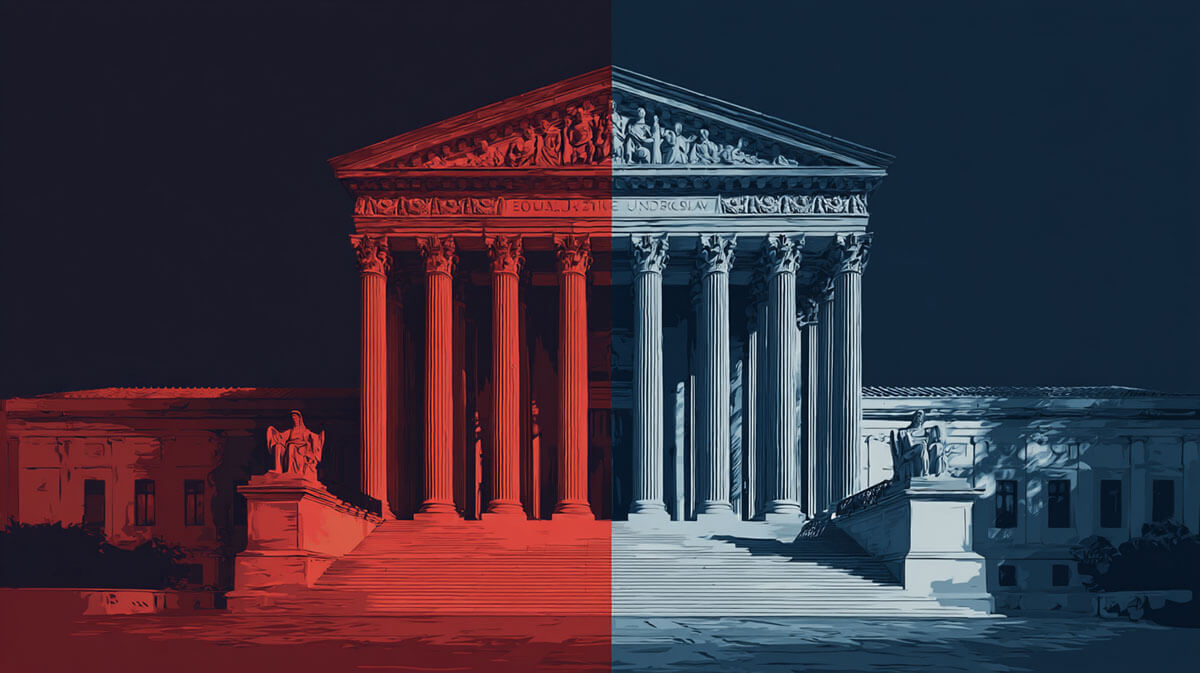A deeply divided Supreme Court will hear arguments Thursday in its first direct challenge to a Trump administration second-term policy, with the high-profile case on birthright citizenship highlighting the increasingly fractured nature of the nation's highest court. The unprecedented special May hearing comes as the justices have been displaying less consensus and more individual agendas, potentially undermining the court's ability to speak with a unified voice during a period of intense constitutional battles.
The case centers on President Donald Trump's January 20 executive order seeking to end automatic citizenship for children born in the United States to parents who are in the country illegally or temporarily. Lower courts in Washington state, Massachusetts, and Maryland issued nationwide injunctions blocking the order, prompting the administration to appeal to the Supreme Court.
While Thursday's hearing will likely focus on procedural questions rather than directly addressing the constitutionality of birthright citizenship, the case illustrates the growing divide among justices as they grapple with challenges to presidential authority.
"The fractured court has been evident in the justices' separate opinions, behavior on the bench, and public appearances," CNN's Joan Biskupic noted in her analysis of the court. "As a result, the court may be less inclined to speak with one voice. The riven justices could, as the country hurtles toward a possible constitutional showdown, risk appearing like yet another set of political actors, unable to meet head-on threats to the rule of law."
The immediate legal question before the court involves "nationwide injunctions," a procedural mechanism where a single federal district judge blocks enforcement of a government action throughout the entire country. The Trump administration has asked the justices to narrow these injunctions to cover only the specific parties involved in the lawsuits, which would effectively allow the birthright citizenship order to proceed in most cases.
Acting Solicitor General Sarah Harris characterized this as a "modest request" in court filings, but opponents argue it would create chaos in citizenship law. As one opposition filing stated, a nationwide injunction "preserves the uniformity of United States citizenship, an area in which nationwide consistency is vitally important."
The current dispute traces back to the 14th Amendment, ratified in 1868, which states that "All persons born or naturalized in the United States, and subject to the jurisdiction thereof, are citizens of the United States and of the State wherein they reside." In the landmark 1898 case United States v. Wong Kim Ark, the Supreme Court ruled 6-2 that this amendment guarantees citizenship to virtually anyone born on American soil, regardless of their parents' status.
Trump's executive order challenges this long-established interpretation, arguing that the 14th Amendment "has never been interpreted to extend citizenship universally to everyone born within the United States." Under the order, U.S. citizenship would not automatically extend to persons born in the United States when their mother is unlawfully present or on a temporary visa and their father is not a U.S. citizen or permanent resident.
The case is being watched closely not just for its implications on citizenship but also for how it reveals the court's internal dynamics. Justices have increasingly written individual concurrences and dissents rather than joining collective opinions, with sharp criticism directed not just at the administration but at their colleagues.
In recent cases involving Trump administration policies on deportation, Justice Sonia Sotomayor wrote that "History is no stranger to such lawless regimes, but this Nation's system of laws is designed to prevent, not enable, their rise." Justice Ketanji Brown Jackson, breaking from her liberal colleagues, drew parallels to the infamous Korematsu decision permitting Japanese American internment, writing, "We are just as wrong now as we have been in the past, with similarly devastating consequences."
Conservative justices have been equally pointed in their separate writings. Justice Samuel Alito expressed being "stunned" by the court's rejection of a Trump request to freeze foreign aid and condemned a lower court judge for engaging in "an act of judicial hubris." In an April dissent related to migrant deportations, Alito unspooled his frustration in seven bullet points, criticizing colleagues for responding "hastily and prematurely" to thwart the administration.
Justice Amy Coney Barrett may have pushed for Thursday's special hearing, suggesting concern about the court's handling of these preliminary challenges without oral argument. When separating herself from fellow conservatives in an April Venezuelan-migrant case, she signed onto part of Sotomayor's dissent criticizing the majority for reaching its conclusion "without oral argument or the benefit of percolation in the lower courts."
Chief Justice John Roberts, who has historically sought compromise and consensus, appears increasingly stymied by colleagues on both ideological wings. Justice Elena Kagan, though politically opposite from Roberts, shares his institutional mindset and reluctance to write separately to add personal perspectives to majority opinions.
The court's apparent fracturing comes at a time when earlier Supreme Courts facing presidential confrontations strove for unanimity. The 1974 United States v. Nixon decision forcing President Richard Nixon to turn over the Watergate tapes was unanimous, as was the 1952 Youngstown Steel ruling limiting President Harry Truman's authority to seize steel mills during wartime. In contrast, last year's Trump v. United States presidential immunity case showed the current court unable to achieve such consensus.
The birthright citizenship hearing will serve as a public test of the court's ability to function cohesively in addressing fundamental constitutional questions. While a decision is expected by late June or early July, the case may be just the beginning of a series of high-profile confrontations between the judiciary and the current administration.
Sources: CNN, Reuters, SCOTUSblog, Constitution Center, NPR, Fox News, MSNBC


